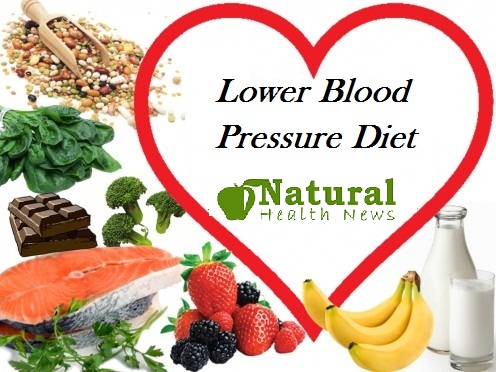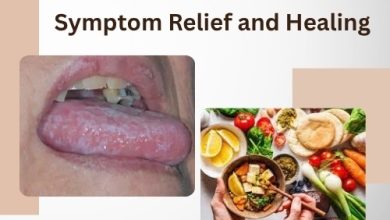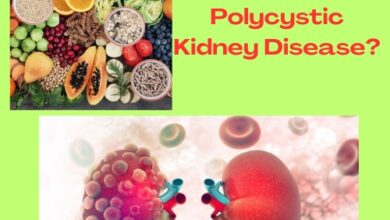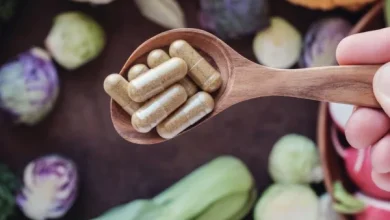4 Ways to Lower Blood Pressure by Changing in Your Regular Diet

High blood pressure, also well-known as hypertension, is a serious and common condition that can lead to life-threatening illness such as stroke, heart attack, heart or kidney failure, and other. Though 1 in 3 American adults have high blood pressure, this condition just affects 3% or less of hunter-gatherer populations that are following a traditional Diet and lifestyle. This would recommend that hypertension is a disease of poor way of life choices, and one that can be successfully treated using simple diet and behavior changes, as well as strategic use of herbal medicine.
While most doctors recommend drug treatment when a patient has reached the prehypertension stage, there is no proof to support pharmaceutical treatment in these patients. But this does not mean hypertension shouldn’t be addressed. Much like high cholesterol, elevated blood pressure is a sure sign of other problems going on in the body.
Reduce Excessive Carbohydrate Intake
One of the most significant contributors to high blood pressure is high blood sugar and insulin resistance. One of the major contributors to all three of these conditions is a surplus intake of carbohydrate, mostly refined grains and sugars.
Additionally, excess intake of sugar-sweetened beverages like soda, sweet tea, and other sugary drinks has been shown to directly control blood pressure.
Cutting out these beverages must be the first step in any hypertension treatment, and can also help with shedding excess weight and reducing high blood sugar both issues that more contribute to hypertension. And don’t think switching to diet will help either, since artificially-sweetened beverages also add to hypertension.
While some research has recommended that high fructose intake may enhance blood pressure, other research shows that fructose itself is not the problem; rather, it is the consumption of excess total carbohydrate that is the major issue. This means you should not be worried with eating modest levels of naturally-occurring fructose, like that from fruit and honey, as these foods are healthy in the context of a moderate carbohydrate diet. Be sure to regulate your carbohydrate intake to your needs and health goals, and get your carbohydrates from nutrient-dense whole foods like fruits and starchy vegetables.
Increase Intake of Minerals like Potassium, Magnesium and Calcium
While most conventional medical expert will suggest sodium limit as the primary method for blood pressure reduction, most important than overall sodium intake is the sodium-to-potassium ratio; thus, eating a high-potassium diet is a better strategy than eating a low-sodium diet.
Also, don’t go too low carb when reducing your carbohydrate intake many of the greatest sources of potassium and magnesium are starchy vegetables like white and sweet potatoes, or fruits like plantains and bananas. White potatoes are especially excellent sources of blood pressure-lowering minerals like potassium and magnesium; hypothetically you can eat three large baked potatoes per day to easily meet your potassium needs while only consuming about 180 grams of carbohydrate. While eating a potato at each meal is not essential to get adequate potassium, I do think those who eat “strict” Paleo should consider reintroducing white potatoes if tolerated.
Eat Grass-Fed Dairy Products like Ghee, Butter and Cheese
Vitamin K2 may be protective against osteoporosis, cardiovascular disease, cancer, and more, so it’s absolutely a nutrient you should be looking to get sufficient of no matter what your health condition. Vitamin K2 may also be protective against hypertension. While there have not yet been any studies directly measuring K2’s effects on blood pressure, logic would recommend that this nutrient could help stop high blood pressure by reducing vascular stiffness and arterial calcification.
One of the well-tolerated foods high in vitamin K2 is grass-fed ghee. Pure Indian Foods is my favorite brand of ghee, but you can eat butter, cheese, and full-fat yogurt or kefir from grass-fed cows to get adequate K2. Fermented dairy may really have independent effects on hypertension as well.
brand of ghee, but you can eat butter, cheese, and full-fat yogurt or kefir from grass-fed cows to get adequate K2. Fermented dairy may really have independent effects on hypertension as well.
Eat Fatty Fish At Least One Pound per Week
A meta-analysis demonstrated that fish oil supplementation may much decrease both systolic and diastolic blood pressure. Taking fish oil supplements to get your omega-3 fats is not a perfect strategy, since some studies recommend that high doses of fish oil may boost cardiovascular and total mortality, particularly when used for more than four years.
A lot of benefits of fatty fish for promoting general health are hard to argue against, and those with high blood pressure may specially benefit from including more fish in their Diet Plans. Also, certain fatty fish like halibut and wild salmon are high in potassium.
By : Natural Health News




